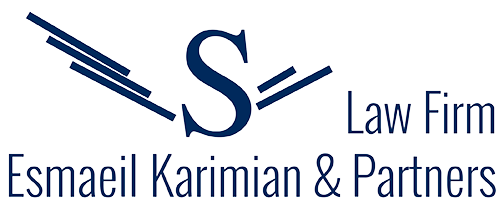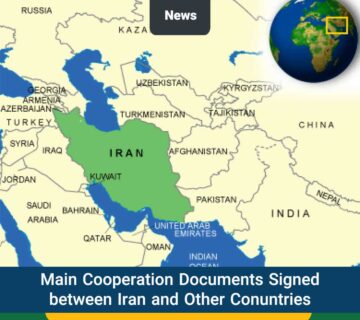In this article you will read:
Double Taxation Treaty
To facilitate cooperation between Iranian and foreign residents and to promote trade and economic exchanges with foreign countries, the Government of the Islamic Republic of Iran has applicable mutual agreements for the Avoidance of Double Taxation.
There are double taxation treaties between Iran and Switzerland, Armenia, Oman, China and etc.
Esk Law firm Services
Tax Law
Taxation on non-resident party?
Iranian entities are subject to tax on all their income wherever earned. Non-Iranian entities are subject to tax on income earned in or received in Iran through the granting of licenses and other rights or through the provision of training and technical assistance, and/or the supply of films. Only government organizations and municipalities are exempt from tax.
What is taxation on payment to a non-resident party?
Where a foreign individual grants a license or any other right to a resident person, the resident person making the payments (i.e. in the form of royalties for patents, know-how, etc.) for such license or right must withhold the applicable tax from each payment. The withholding tax is levied at the progressive rates.
The tax base ranges between 20% and 30% of the payment according to the type of royalty.
What is the withholding tax for Royalty, Management Fees, Interest, for payment to a non-resident third party etc.?
- The payer is required to withhold from each payment, the applicable tax by taking into account the total payments made from the beginning of the year up to the date of each relevant payment.
- The payer should remit the withheld tax amounts, within 10 days, to the relevant tax affairs office. The tax withheld is final.
- Non-resident companies are taxed in Iran on their income derived from Iran. Those receiving royalties, license fees or interest are subject to a withholding tax deducted at source from such payments, which is considered final.
- Non-resident companies providing services inside or outside Iran are also subject to withholding tax, the withholding tax being deducted from payments for such services.

Interests
Interest paid by an Iranian company to a foreign company is subject to a withholding tax of 3% on the gross amount. This is a final withholding tax and must be remitted within 10 days from the date on which the interest has been paid.
Royalties
Where a foreign company grants a license or any other similar right to a resident company, the resident company making the payments (in the form of royalties for patents, know-how, etc.) for such license or right must withhold the applicable tax from each payment. The withholding rate is the 25%. This rate is applicable to 20% or 30% of the total annual receipt, resulting in an effective tax rate of 5% or 7.5%.

The effective tax rates are detailed as follows
Payments by resident companies operating in the manufacturing and mining sectors: 5%;
Payments by Iranian ministries, municipalities and government institutions or organizations: 5%;
Payments for the rights to broadcast cinematographic films: 5%;
Payments for any other licenses or rights to any other Iranian persons: 7.5%.
The withheld amount is to be remitted to the Tax Affairs Office within 10 days; otherwise, the payers will be jointly liable for payment of the main tax and any other payments relating thereto. The tax deducted is considered final.

Management fees
Management fees and training fees paid to non-resident companies are subject to a provisional withholding tax at the rate of 3% on their gross amount. Payments to non-resident companies under procurement contracts are subject to a provisional withholding tax at the rate of 3% on the gross amount. There is no branch profits tax in Iran.
What are the Transfer Pricing Norms, method allowed, etc.?
In recent years, the Iranian tax authorities have been interested in this subject but there is still no regulations or directives for companies on transfer pricing rules.
However, penalties as prescribed under the general provisions of the Iranian tax law are applicable in cases of a deficiency assessment relating to a transfer pricing adjustment.
Our team is composed of highly skilled and versatile lawyers who combine practical experience and academic knowledge of their field. Most of our practitioners have worked in different professional environments, often outside their home jurisdiction.
What are the Capital Gain Tax (Short Term or long term) on sale of equity of a resident entity
There is no capital gains tax on the sale of shares. The transfer of stocks, partnership shares, priority rights in partnership and shares of companies that are not listed on the stock exchange are subject to a transfer tax at a flat rate of 4% applicable to their face value. For shares that are trading on the stock exchange, the transfer tax applies at a flat rate of 0.5% on the sale proceeds.
Therefore, as for capital gains tax (CGT), there is no CGT in the Iranian taxation system neither for resident persons nor for non-resident persons.
Which accounting standards are applicable in Iran (IFRS, local GAAP or US GAAP)?
The actual audit system of companies in Iran meets all international standard audit criteria. Moreover, systems like GAAP are accepted and recognized by tax authorities and there is no restriction for foreign companies to use their own systems. After registering a company in Iran, one inspector from the local tax department will be introduced to the company as a liaison officer and is recommended to send a report on the audit system of the company to him for further references.
Accountants of company can make arrangement to prepare financial statement and to prepare and submit tax declaration.





No comment